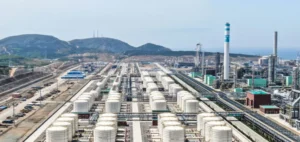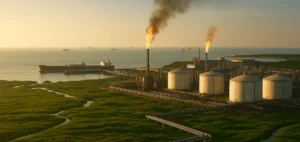Iraq resumes crude oil exports from Basrah terminal. On September 15, an oil spill interrupted shipments from the oil terminal. As a result, the country’s exports have been reduced by about 1 million barrels per day.
In fact, as a result of these problems, the BOC had to reduce pumping rates by more than 25%. They reached 54,000 barrels per hour, compared to 70,000 bph in normal times.
While the leak disrupted Iraq’s exports, shipments from its single-point moorings were not affected. Since then, Basrah Oil Co (BOC) has resolved the problems that caused the oil spill. Loads and exports are therefore resuming.
The company states:
“[Les] technical and engineering teams [ont] treated a crude oil leak in the Basrah oil port surplus tank system, and pumping operations have gradually resumed.”
In order to compensate for the crude exports, BOC intends to increase the volumes pumped in the coming days.
Iraq faces aging infrastructure
However, Iraq must take into account a significant risk of an oil spill at the Basrah terminal. In fact, two shipping lines feeding the piers are aging.
These lines were installed in the late 1970s. They must be replaced. However, Iraq has not been able to do so. Several factors explain this: funding problems, political unrest, but also delays. Thus, to compensate, 4 single point moorings complete these maritime lines.
At the end of August, SOMO had 5.665 million barrels of crude in storage at its southern terminal. This corresponds to about 66% of the available storage. Currently, the southern Iraqi terminals have an export capacity of 3.4 million barrels per day. In August, SOMO exported 2.108 million b/d of medium Basrah and 1.142 million b/d of heavy Basrah.





















